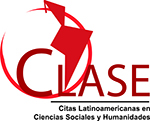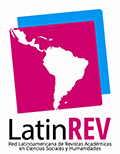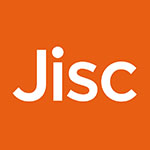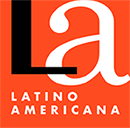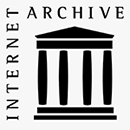Assessment of government openness through the concept of open government: the case of Honduras
Abstract
The topic of Open Government is presented starting from its origins at the end of the 20th century, followed by the establishment of its fundamental principles and pillars, the creation of its promoting institutions, until the development of innovative concepts such as open data and open process, seen as tools to make public management transparent and provide access to citizens to participate in the exercise of the government, through the reuse of public data and the use of technology. The open government legal framework of the State of Honduras and its open data portals are analyzed, which will allow a comparative analysis with Latin American countries under a quantitative methodology on state openness, access to information and levels of transparency through various international indexes such as the Rule of Law Index and the Global Freedom Index. Followed by comparative strategies that are presented to achieve effective compliance with Open Government, such as: digital and technological development, citizen participation and the strategic goals of the Open Government Partnership, which include open public contracting.
Downloads
References
Alianza para el Gobierno Abierto. (2023). Estrategia: Objetivos y teoría de cambio. Open Government Partnership. https://www.opengovpartnership.org/estrategia-de-ogp-2023-2028/#toc_3.
Autoridad Nacional para la Innovación Gubernamental. (2018). Programa Cobertura Digital Nacional. Gobierno de Panamá. https://aig.gob.pa/rnipanama/.
Ayala, J. (2022). Informe de resultados de transición de Honduras 2018-2021. Open Government Partnership. https://www.opengovpartnership.org/es/documents/honduras-transitional-results-report-2018-2021/.
Ayuntamiento Bilbao. (2023). ¿Qué es Open Data? Bilbao Open Data. https://www.bilbao.eus/opendata/es/que-es-open-data.
Banco Mundial. (2021). Personas que usan Internet (% de la población) - Panamá. https://datos.bancomundial.org/indicator/IT.NET.USER.ZS?locations=PA.
Beetham, D. y Boyle, K. (1996). Cuestiones sobre la Democracia. Conceptos, elementos y principios básicos. UNESCO.
Bermúdez, V., Aguilar, A. y Hernández, Y. (2018). Educación, cultura y sociedad: oportunidades para la investigación. Ediciones Universidad Simón Bolívar. https://bonga.unisimon.edu.co/bitstream/handle/20.500.12442/3652/cap4.pdf?sequence=9&isAllowed=y.
Comunidad Rural Digital. (2014). Open Data. Publicación y reutilización de Datos Abiertos como iniciativa de Gobierno Abierto en la Administración. https://datos.gob.es/sites/default/files/doc/file/open_data_publicacion_y_reutilizacion_de_datos_abiertos_como_iniciativa_de_gobierno_abierto_en_la_administracion_compressed.pdf.
Concha, G. y Naser, A. (2012). Datos Abiertos: Un nuevo desafío para los gobiernos de la región. Instituto Latinoamericano y del Caribe de Planificación Económica y Social. https://www.transparencia.gob.gt/wp-content/uploads/2017/07/2012-01.pdf.
Dassen, N. y Cruz, J. (Eds.). (2012). Gobierno abierto y transparencia focalizada. Tendencias y desafíos para América Latina y el Caribe. Banco Interamericano de Desarrollo. https://publications.iadb.org/publications/spanish/viewer/Gobierno-abierto-y-transparencia-focalizada-Tendencias-y-desaf%C3%ADos-para-Am%C3%A9rica-Latina-y-el-Caribe.pdf.
Dassen, N. y Ramírez-Alujas. (2016). Vientos de cambio II. Avances y desafíos de las políticas de gobierno abierto en América Latina y el Caribe. Banco Interamericano de Desarrollo. https://publications.iadb.org/publications/spanish/viewer/Vientos-de-cambio-II-Avances-y-desaf%C3%ADos-de-las-pol%C3%ADticas-de-gobierno-abierto-en-Am%C3%A9rica-Latina-y-el-Caribe.pdf.
Economic and Social Commission for Western Asia. (2020). Legal Aspects of Open Government and Open Data. (ESCWA).
Fernández, V., Güemes, M., Magnin, J., Vigil, J. y García, J. (2008). Capacidades estatales y desarrollo regional. Realidades y desafíos para América Latina. Documentos y Aportes en Administración Pública y Gestión Estatal, 8(10), 177-182. https://www.redalyc.org/pdf/3375/337530215008.pdf.
Freedom House. (2022). Global Freedom Status: Honduras. https://freedomhouse.org/country/honduras/freedom-world/2023.
International Association for Public Participation. (2018). IAP2 Spectrum of Public Participation. https://cdn.ymaws.com/www.iap2.org/resource/resmgr/pillars/Spectrum_8.5x11_Print.pdf.
International Budget Partnership. (2021). Honduras. https://internationalbudget.org/open-budget-survey/country-results/2021/honduras.
Marín, J. y Amin, L. (2019). Recommendations on Open Contracting for OGP Action Plans. Transparency International. https://images.transparencycdn.org/images/Rec-on-Open-Contracting-for-OGP-action-plans-FINAL.pdf.
Mulgan, G. y Albury, D. (2003). Innovation in the Public Sector. http://www.sba.oakland.edu/faculty/mathieson/mis524/resources/readings/innovation/innovation_in_the_public_sector.pdf.
Naser, A., Rosales, A. y Ramírez-Alujas. (2017). Desde el gobierno abierto al Estado abierto en América Latina y el Caribe. Comisión Económica para América Latina y el Caribe.
Nath, J. (2011). Reimagining Government in the Digital Age. Wiley Online Library. https://onlinelibrary.wiley.com/doi/epdf/10.1002/ncr.20070?saml_referrer=.
Obama, B. (2009). Memorandum on Transparency and Open Government. The White House. https://obamawhitehouse.archives.gov/the-press-office/transparency-and-open-government.
Organización para la Cooperación y el Desarrollo Económicos. (2005). Open Government. En Modernising Government: The Way Forward. https://doi.org/10.1787/9789264010505-en.
Organización para la Cooperación y el Desarrollo Económicos. (2010). OECD Guiding Principles for Open and Inclusive Policy Making, expert meeting on building an open and innovative government for better policies.
Open Contracting Partnership. (2017). How citizens are using open contracting to improve public spending. https://medium.com/open-contracting-stories/paraguays-transparency-alchemists-623c8e3c538f.
Open Contracting Partnership. (2022a). Inclusive and effective public procurement: findings and lessons from research in 12 countries.
Open Contracting Partnership. (2022b). ¿Qué es OCDS y por qué utilizarlo? https://standard.open-contracting.org/latest/es/primer/what/.
Open Government Partnership. (2018). Análisis del Estado de Honduras. https://www.opengovpartnership.org/members/honduras/.
Oszlak, O. y Kaufman, E. (2014). Teoría y práctica del gobierno abierto. Lecciones de la experiencia internacional. CEDES.
Ramírez-Alujas, A. (2014). Gobierno Abierto. Eunomía. Revista en Cultura de la Legalidad, (5), 201-216.
Ramírez-Alujas, A. y Dassen, N. (2012). Gobierno abierto: la ruta hacia una nueva agenda de reforma del Estado y modernización de la administración pública en América Latina y el Caribe. Banco Interamericano de Desarrollo. https://www.gigapp.org/administrator/components/com_jresearch/files/publications/AVRA-DASSEN2012.pdf.
Ramírez-Alujas, A. y Güemes, M. (2013). Gobierno Abierto: oportunidades y desafíos. Una reflexión socio-política con la mirada puesta en Latinoamérica. HAL Open Science. https://shs.hal.science/halshs-00874133/document.
Sandoval, R. (2009). Gobierno 2.0: Apuntes iniciales para su aplicación en México. Buen Gobierno, (7), 8-20. https://www.redalyc.org/pdf/5696/569660515005.pdf.
Sierkovich, L. (2022). Quinto Plan de Acción Nacional de Gobierno Abierto. Jefatura de Gabinete de Ministros. https://www.opengovpartnership.org/wp-content/uploads/2023/01/Argentina_Action-Plan_2022-2024.pdf.
Valenzuela, R. y Bojórquez, J. (2015). Modelos de implementación del gobierno abierto en México. Universidad Autónoma de México.
World Justice Project. (2022). Rule of Law Index 2022.
Zangrilli, O. (2017). Open Government: dalla semplificazione della P.A. alla e-Democracy, pp. 29-30. LUISS, Dipartimento di Scienze Politiche.
Copyright (c) 2024 Eduardo Andres Estrada Vargas

This work is licensed under a Creative Commons Attribution-NonCommercial-NoDerivatives 4.0 International License.
This license allows the copy, distribution, exhibition and representation of the work provided authorship is acknowledged and the work is properly quoted. Commercial use of the original work or the generation of derived works are not allowed.
The authors hereby guarantee the right to the first publication of the work to the Revista Política Austral.







